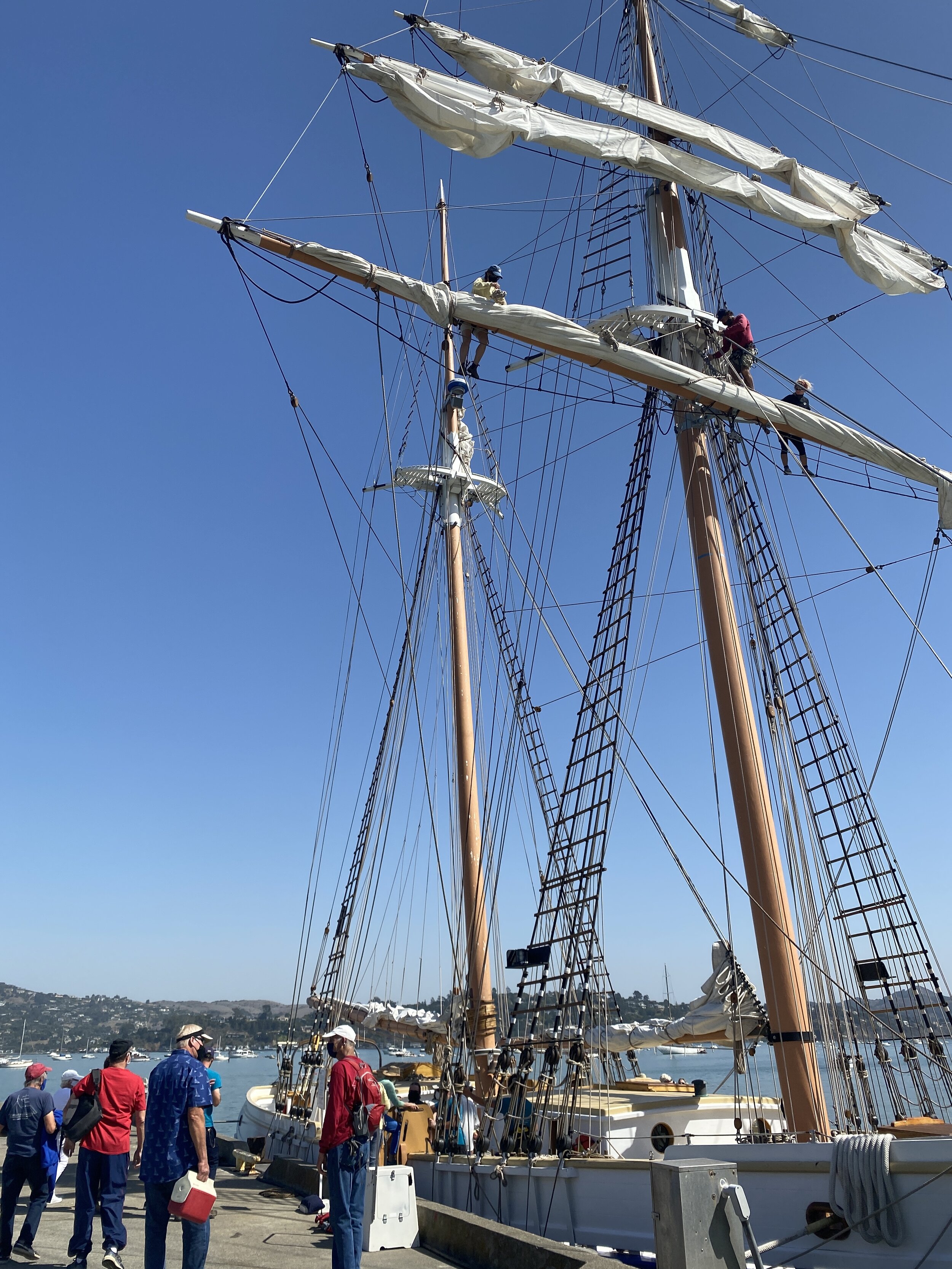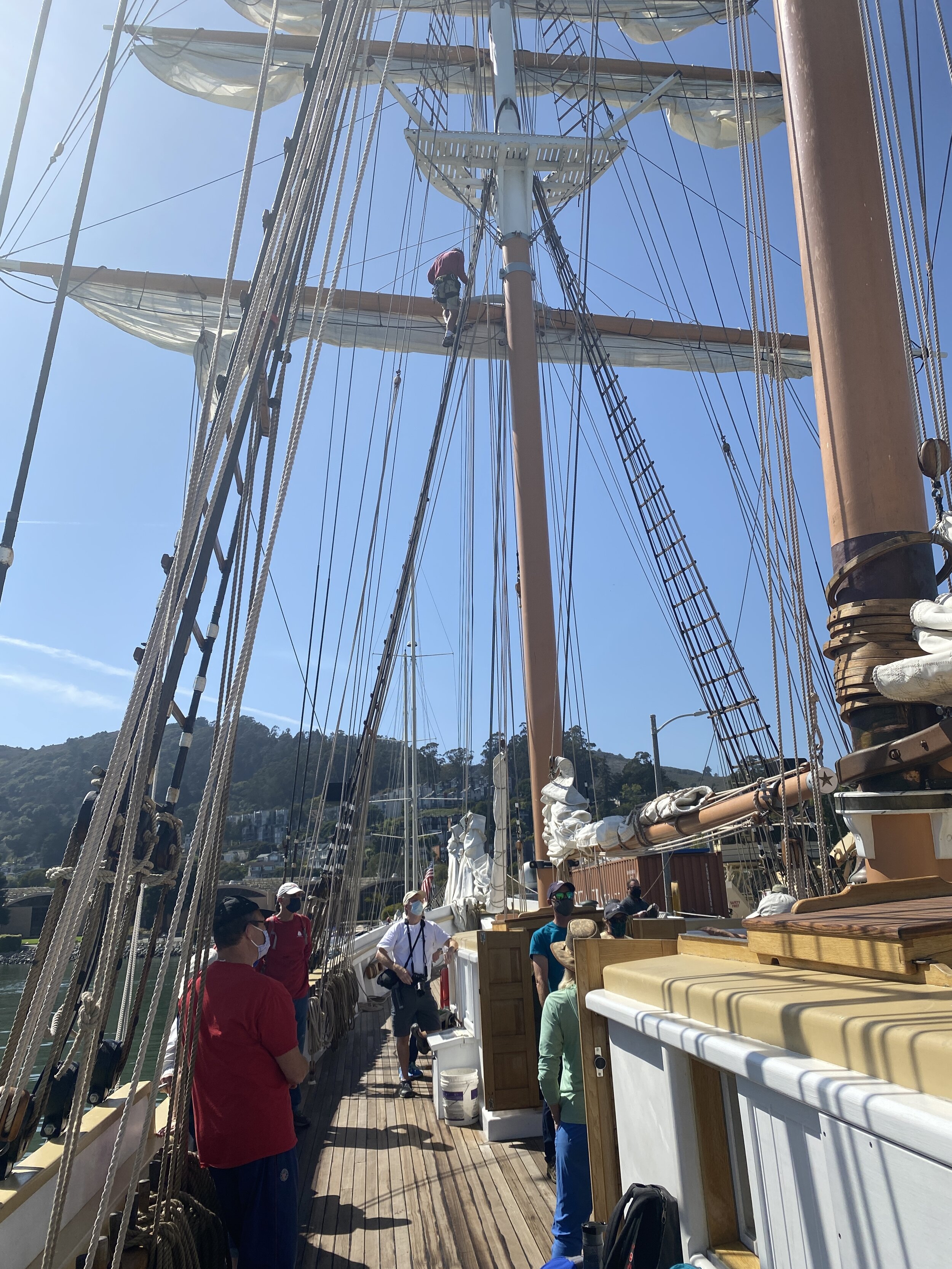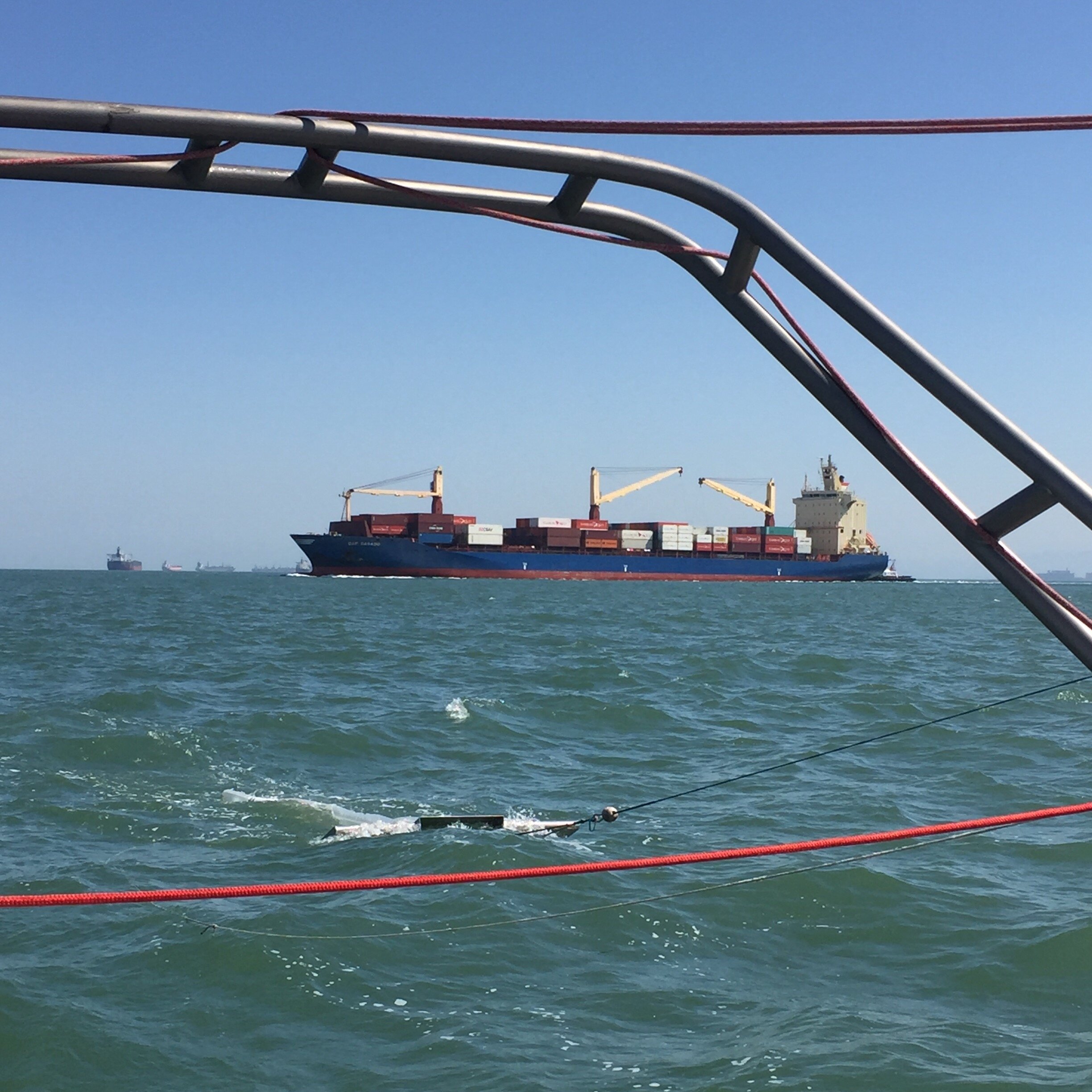Join us May 14th to learn how microfiber pollution is measured, what we know about the potential sources and pathways for fiber pollution in our region including what’s in our closets, the important role of the carbon cycle in textile systems design, and how natural fibers can be an important solution. Together, Materevolve and Fibershed are collaborating to host an immersive experiential learning program demonstrating the key connections between ocean pollution and nature-forward materials solutions.
BACKGROUND:
In November 2020, the California-based educational non-profit Fibershed hosted a virtual panel of marine-focused voices entitled “Following the Plastic Flow: From oil industry to Our Wardrobes to Oceans” with Krystle Moody Wood, founder of the sustainability textiles consultancy Materevolve, as moderator. Through that panel, the Fibershed panelists took audience participants up the textiles stream to understand why and how the modern wardrobe is damaging life in marine ecosystems, how plastic-based clothing is connected to the fossil fuel industry’s ongoing carbon emissions, and how natural fiber systems provide a pathway to healthier material impacts and climate resilience. Recently, Fibershed also submitted a letter to the Ocean Protection Council supporting the Statewide Microplastics Strategy for California and outlining recommendations to curb the proliferation of microplastic microfibers at their source in synthetic textile production and use.
That same month, Materevolve partnered with NOAA’s Marine Debris Program to host an invite-only program entitled the “California Microfiber Workshop: Science, Innovation & Connection” bringing together scientists from marine science and textiles, government, materials innovators and non-profit. In this workshop, participants from multiple sectors brought their individual expertise, built a shared understanding, brainstormed priority consumer and producer messaging, and explored key priority materials solutions. As an outcome of this workshop, NOAA and Materevolve produced a detailed 30 page report entitled California Microfiber Update: Textile Pespective that summarizes the findings of the workshop. One of these key priority material solutions is re-investing in natural fiber systems and a holistic approach to textile systems.
PROGRAM OVERVIEW:
On Friday May 14th, 2021, the Matthew Turner, a wooden tall ship operated by educational non-profit Call of the Sea, will set sail out of Sausalito with 28 sustainable textile leaders and other key stakeholders interested in learning about how soil and sea connect to regional and regenerative textile systems. Together, Materevolve and Fibershed are collaborating to host an immersive experiential learning program demonstrating the key connections between ocean pollution and nature-forward materials solutions. This program will include a carefully curated sail out of the San Francisco Bay and under the Golden Gate Bridge, highlights of the ground-breaking research of San Francisco Estuary Institute’s three-year study of microplastic pollution, the latest update from California regional marine research studies, and a COVID-considered curriculum to demonstrate research techniques and inspire participants. On-board program participants will learn how microfiber pollution is measured, what we know about the potential sources and pathways for fiber pollution in our region including what’s in our closets, the important role of the carbon cycle in textile systems design, and how natural fibers can be an important solution.
PROGRAM MAIN GOALS:
Educate
Provide a progressive and technical educational program that highlights effects of microfiber pollution and climate change effects on the ocean in a carefully curated environment that encourages learning and a deeper understanding of the textile industry connection to soil and sea.
Celebrate
Highlight science, policy, and textile industry leaders that are taking action by conducting research, developing unique partnerships, and incorporating ocean-led solutions.
Inspire
Host an experiential learning program that inspires each attendee to make big changes in their careers and lives, with soil and sea in mind.
Collaborate
Facilitate an authentic discussion between a multi-stakeholder group of ocean experts, ocean lovers, textile industry, policy, advocacy, and business professionals on key next steps for the future of textiles through the soil and sea lens.
TARGET ATTENDEES:
Target participants include textile industry experts, textile company representatives, microplastics scientists, ocean policy makers, representatives from universities and environmental groups, and other interested stakeholders. Please email krystle@materevolve.com if you are interested in joining us.
See a live manta trawl demo in the San Francisco Bay! (No, it is not a live manta, but a manta-shaped device that collects surface water samples for us to analyze!)
COVID PROTOCOLS:
Together with Call of the Sea, we have designed an experiential learning program that takes into account the health and safety of our program participants. We will be:
limiting group size and designing education stations to allow for maximum passenger spacing during sail
following all current state protocols for hosting small group events
conducting a group health check-in before boarding the vessel
providing hand sanitizer to all participants before, during and after sail
requiring all participants wear double layer face covers or medical grade face masks and to stay home if feeling sick or under the weather
providing participants with guidance and resources throughout the sail to encourage a fun and safe time on the vessel
Carolynn Box, Ocean Conservation Consultant and Materevolve co-host, will demonstrate and provide an overview of current microplastics and microfiber sampling methodology. She is pictured here on a policy sail in San Francisco Bay hosted in October 2019.



